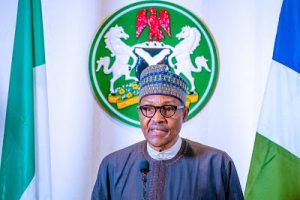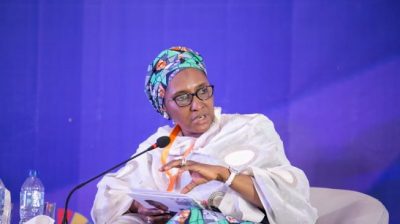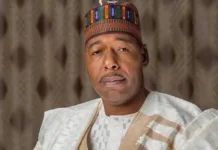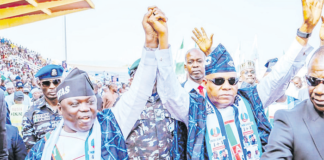The nation’s economy, under President Muhammadu Buhari’s administration, would recede for the second time should the NBS projection comes to past.

The Minister of Finance, Zainab Ahmed says the coronavirus pandemic and the drop in oil prices may plunge the country into another economic recession.
Zainab who made the prediction on Thursday said, “The National Bureau of Statistics (NBS) has made an assessment. So, it is the NBS assessment that Nigeria will go into a recession measuring at an average of -4.4%,” Ahmed said after the National Economic Summit meeting in Abuja.
“But with the work that the Economic Accessibility Committee is doing bringing stimulus packages, we believe that we can reduce the impact of that recession.”
The nation’s economy, under President Muhammadu Buhari’s administration, would be receding for the second time should the NBS projection comes to past.
Nigeria’s economy went into recession at the end of Q2 in 2016 after falling oil prices ate deep into the country’s earnings and caused the naira to weaken thereby causing inflation to spiral upward.
Spates of attacks on oil installations in the Niger Delta by militants, who were protesting for better deals from the government, almost crippled oil production.
This time, however, even healthier economies have been heavily impacted by the pandemic.
In April, France’s labour minister Muriel Penicaud informed that the pandemic had forced about 10.2 million people out of job.
In the United States, the numbers are even direr with over 38 million people filing for unemployment.
In the case of Nigeria, the finance minister noted that the effect of the coronavirus outbreak on oil prices has already started showing on the country’s revenues and the foreign exchange earnings.
Zainab explained that “Net oil and gas revenue and influx to the federation account in the first quarter of 2020 amounted to N940.91billion” which “represented a shortfall of N125. 52billion or 31% of the prorated amount that is supposed to have been realized by the end of that first quarter.”
The minister stated that the global health crisis will only multiply the misery and stunt the economic growth in Nigeria by affecting the GDP by as much as –8.94% in 2020.
But in the best case which Zainab said, Nigeria is working on could reduce the effect to a contraction of –4.4% “if there is no fiscal stimulus.”
“But with the fiscal stimulus plan that we are working on, this contraction can be mitigated and we might end up with a negative –0.59%,” Zainab said.
“This is a very difficult time because the challenges we have now are double. There is a health challenge, there is an economic challenge.”















